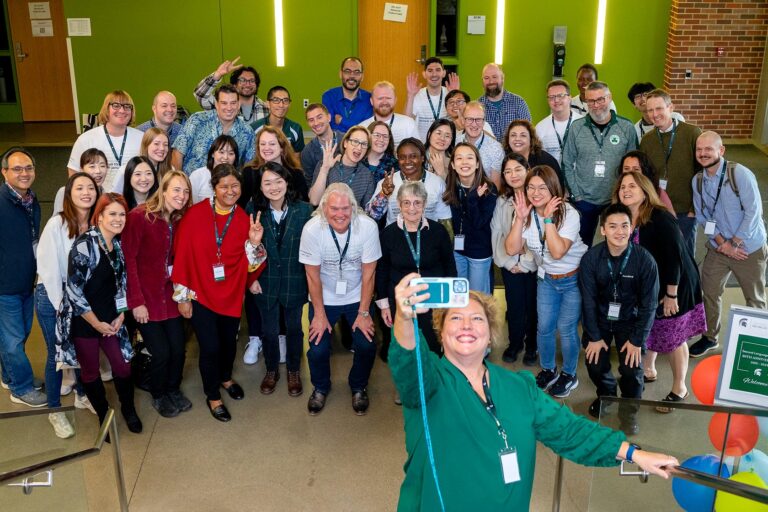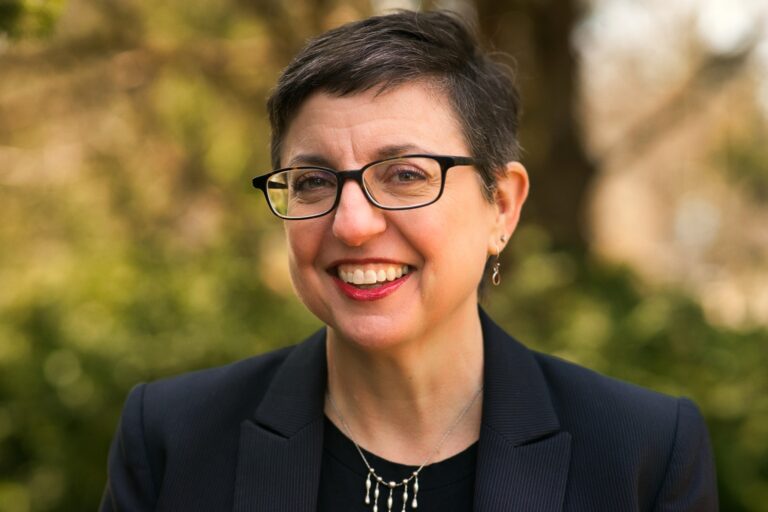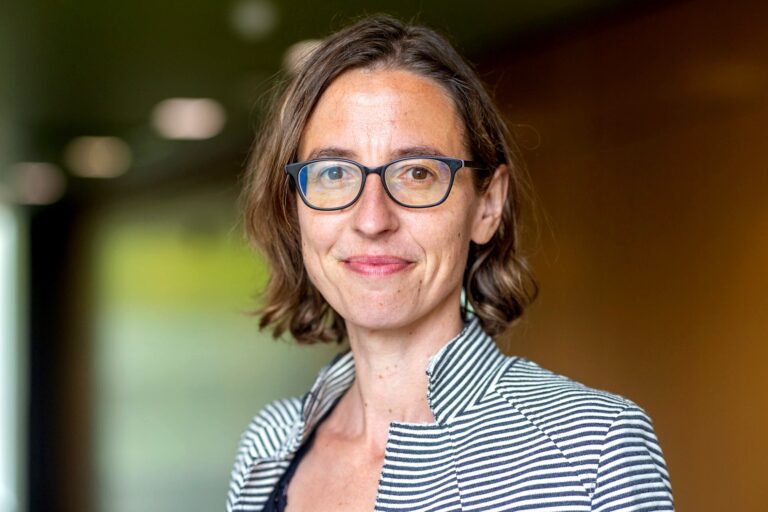Jonathan Choti, Associate Professor in the Department of Linguistics, Languages, and Cultures (LiLaC) at Michigan State University, successfully completed a five-day summer intensive workshop on community-engaged scholarship hosted by MSU’s Office of University Outreach and Engagement.
This training, which took place June 2-6, 2025, at MSU’s Kellogg Hotel and Conference Center, attracted 41 participants, including faculty, academic staff, graduate students, and community partners from different universities and academic backgrounds. Participants explored how to embed and align academic work with the needs of local and global communities.
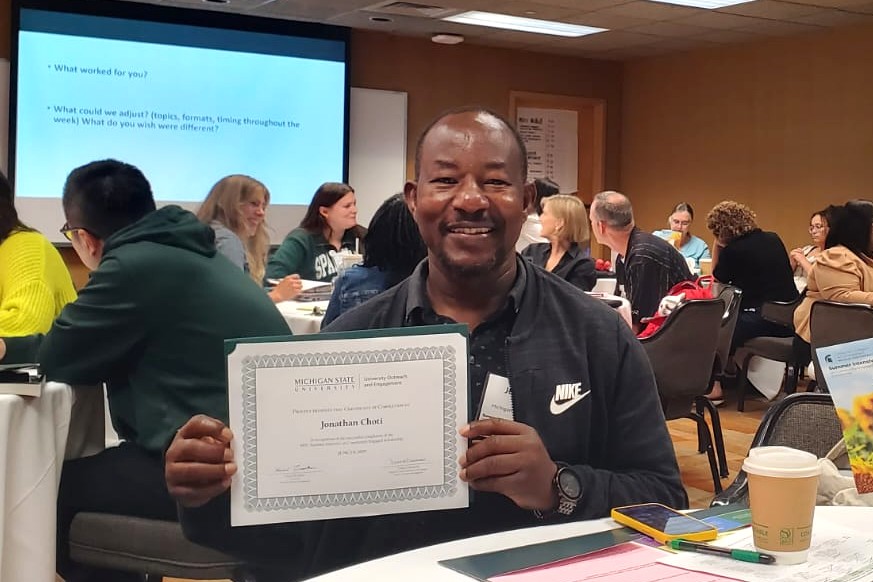
Choti’s participation in this workshop was sponsored by MSU’s Tanzania Partnership Program (TPP), for which Choti serves as faculty director. The TPP offers a six-week summer education abroad program, Sustainable Community Development in Tanzania, that MSU runs jointly with two Tanzanian universities – the University of Dar es Salaam and Sokoine University of Agriculture. As part of this program, faculty and students from the three institutions collaborate with members of Naitolia Village in northern Tanzania to co-create and implement experiential projects that address burning issues in this rural community while providing an educational experience modeled on the core principles of community-engaged scholarship.
Choti’s participation in the summer intensive workshop deepened his understanding of community-engaged scholarship.
“I did not expect to learn so much about community-engaged scholarship within such a short time. The program was intense, and I am proud of what we accomplished within the five days of training,” Choti said. “I feel empowered to improve my community-engaged approaches in leading student projects in my education abroad program and publishing results from students’ experiential projects.”
The five-day workshop was designed to empower participants in terms of knowledge and trends in the field of community-engaged scholarship, core strategies, and resources that support meaningful, ethical, and sustained engagement between universities and community partners. Workshop participants engaged with key concepts and definitions, historical traditions, theory and practice, and real-world applications of community-engaged research and perspectives.
“The program was intense, and I am proud of what we accomplished within the five days of training. I feel empowered to improve my community-engaged approaches in leading student projects in my education abroad program and publishing results from students’ experiential projects.”
Dr. Jonathan Choti
Coordinated by Diane Doberneck, Director for Faculty and Professional Development for MSU’s Office for Public Engagement and Scholarship, the workshop began with a comprehensive overview of the histories and traditions of community-engaged scholarship, tracing its roots in social justice movements, participatory action research, missions of land grant universities such as MSU, and the exploration of indigenous knowledge systems.
Through presentations, readings, field trips, and group discussions, participants examined how community-engaged scholarship adds to the traditional in-class and lab instruction by centering collaboration, reciprocity, experiential learning, university-community linkages, and social impact in higher education.
The workshop also explored the best practices of communicating with the public through writing, storytelling, media outreach, and publishing in academic and non-academic channels. This topic included information on identifying relevant journals and guidance on co-authorship with community partners.
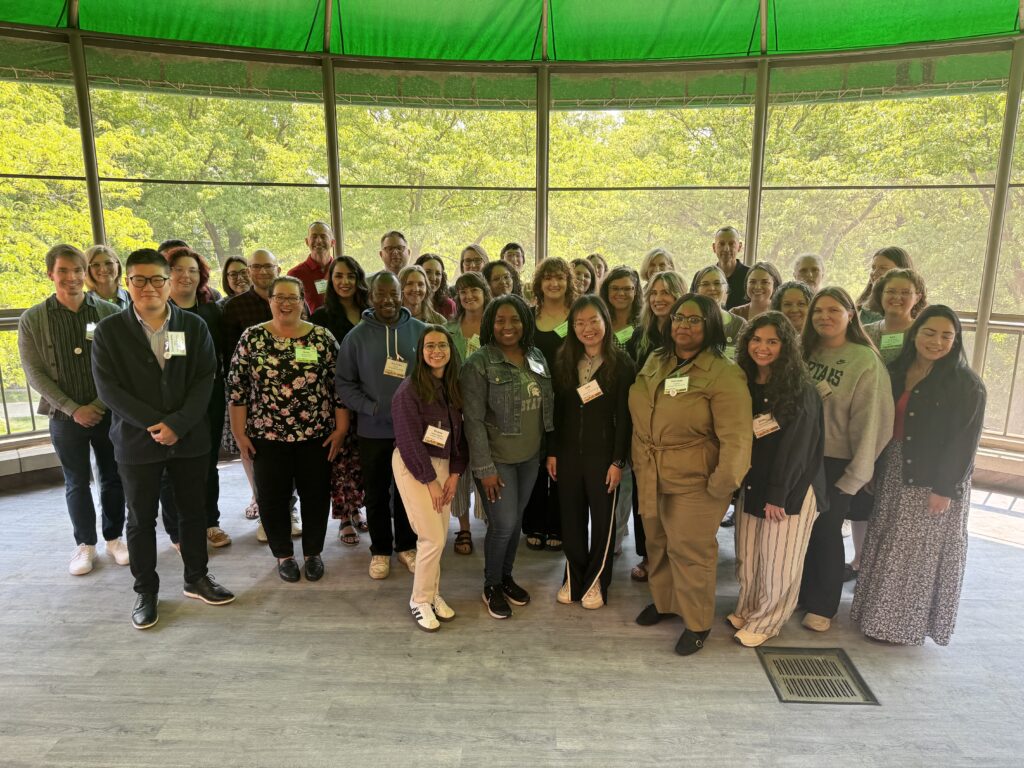
One afternoon was spent visiting four different community partner sites, including a neighborhood center, refugee development center, a courthouse, and an ecological research center. These visits gave participants firsthand insights into how partnerships are cultivated and sustained, underlining the importance of place-based learning and mutual engagement.
One session identified strategies for career success in community-engaged scholarship, addressing how early-career and fixed-term scholars can align their research, teaching, and service with community values. Participants learned how these accomplishments can contribute to tenure, retention, and promotion.
The workshop also highlighted the importance of learning from real-world examples through case studies involving MSU scholars that illustrate the diversity, significance, and depth of community-engaged scholarship in practice. These case studies included:
- Youth empowerment initiatives where MSU scholars co-designed projects that centered youth in intergenerational programs to preserve and highlight the traditions and customs of Native Americans.
- Capstone projects by MSU Engineering students who collaborated with local organizations to address pressing community issues through applied research and service-learning activities.
- Collaborative research with Indigenous communities that highlight the ethical approaches adapted by MSU in co-producing knowledge with Indigenous partners from early childhood programs. This partnership is grounded in cultural respect and mutual benefit for the university and community partners.
- Advancing health equity, an MSU scholar’s long-term collaboration with a community to address health issues affecting the youth in that community.
“I was exposed to excellent community-engaged work that our colleagues at MSU are engaged in, alongside a wide range of partners, and the impactful outcomes of those projects,” Choti said. “The networks I created during the workshop will enrich my career.”
Choti and the other workshop participants praised workshop organizers and facilitators for their outstanding planning and in-depth knowledge, acknowledging the new skills acquired and networks gained and pledging a deeper commitment to integrating community-engaged approaches into their academic and professional work.
Choti’s accomplishments over his 10-year collaboration with the northern Tanzanian community of Naitolia Village have been highlighted through a number of articles at MSU, including:
- “Study Abroad Wins Excellence Award in Interdisciplinary Scholarship”
- “Jonathan Choti Receives Network for Global Civic Engagement (NGCE) Grant”
- “Education Abroad Program Spurs Positive Change in Rural Tanzania”
- “From Chicken Coops to Community Garden: MSU Students, Village Residents Co-Design Projects in Northern Tanzania”
“Community-engaged learning provides a real-world context for students to apply their academic knowledge and skills. Working alongside community members to address existing issues helps students deepen their understanding of course content and apply critical and problem-solving skills in addressing real-world problems,” Choti said. “Community engaged learning also teaches civic responsibility and provides a professional development opening for faculty.”
For more information about future community-engaged scholarship workshops and ongoing initiatives, please visit the University Outreach and Engagement website or contact Diane Doberneck at engage@msu.edu.
By Jonathan Choti and Kim Popiolek
